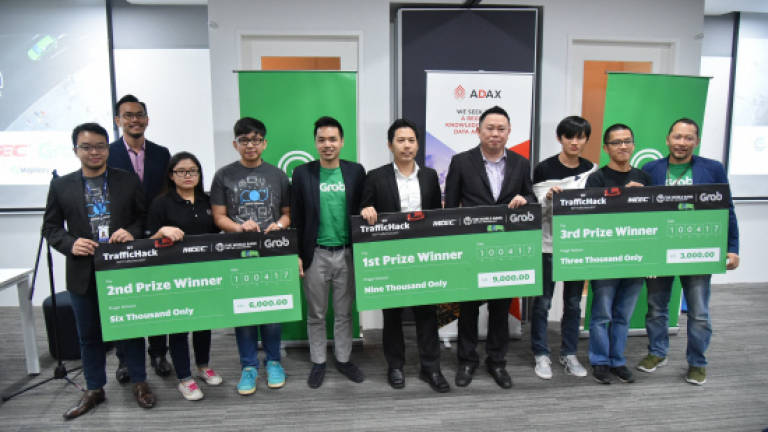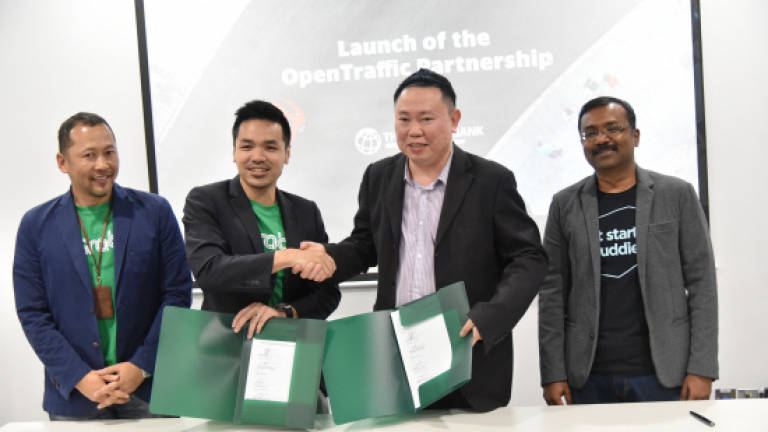Alleviating traffic woes


SOUTHEAST Asia’s leading ride-hailing technology company Grab and the Malaysia Digital Economy Corporation (MDEC), together with the World Bank Group, officially launched the OpenTraffic initiative in Malaysia recently.
GREAT IDEA
OpenTraffic translates GPS data provided by Grab drivers into an anonymous traffic data “base” to map traffic speeds on roads in order to analyse traffic congestion peak patterns and travel times. Operating on an open data licence, governments can access the data at no cost, allowing traffic management agencies to make plans that ease traffic flows, particularly within dense urban areas.
Local government agencies can use the data to enhance existing traffic management systems such as optimising traffic light control and coordination. Easing city congestion during peak hour traffic will also help reduce carbon emission and save commuters time.
MASTERLY PLAN
“At Grab, we maintain one of the largest data-sets in the region, derived from our drivers’ GPS data across Southeast Asia. As the region’s leading ride-hailing platform, we want to contribute by sharing our data and working alongside local government agencies to help make transport more accessible for the 620 million people in the region. We are certainly excited to participate in the OpenTraffic project to help shape and improve Malaysia’s transport sector,” said Grab Malaysia country head Sean Goh at the launch.
Malaysia is the second country to gain access to OpenTraffic, after it was first launched in the Philippines in April 2016. Since then, there have been improvements in traffic signal times along the primary east-west arterial area in Cebu City, the most congested corridor in the country, and without the need for additional infrastructure investment and such.
HACKING FOR THE BETTER
To mark the launch of OpenTraffic in Malaysia, Grab held “MyTrafficHack” over the course of a weekend. The initiative, a hackathon, was the product of a collaboration between Grab and MDEC, supported by the World Bank Group and open source platforms, Carto and Mapillary.
A total of 20 teams comprising 80 participants engaged in the hackathon. The top five finalists got to present their ideas at the launch before the winning solution of Ng Kok Kwan, called “Rendezous”, was announced. Ng used machine learning to process OpenTraffic data to help visualise insights that aid decision-makers and road users. As the winner, he received RM9,000. Second place went to Team S.I comprising Joel Lee Chee Choong, Wee Vivien, Kong Ka Weng, and Tey Su Anne for their app “TravelSafe”, while third place went to Kevin Loh Khai Khoon and Ho Chin Hee of Team Ditto for their chatbot idea “Hazard Reported”. The runners up walked away with RM6,000 and RM3,000 respectively. The first and second place winners also gained entry into MDEC’s National Big App Challenge, while all three received a “personal” Carto account valid for a year.
“We are excited that Grab and World Bank has extended the access of the OpenTraffic platform and that the data is open to Malaysian agencies. It is only practical for traffic solutions that can impact a nation to be borne from local data.
“We hope that initiatives such as this will help in growing and building the technology ecosystem,” said MDEC data economy division director Dr Karl Ng. For more information, visit the OpenTraffic initiative on Grab’s official website.